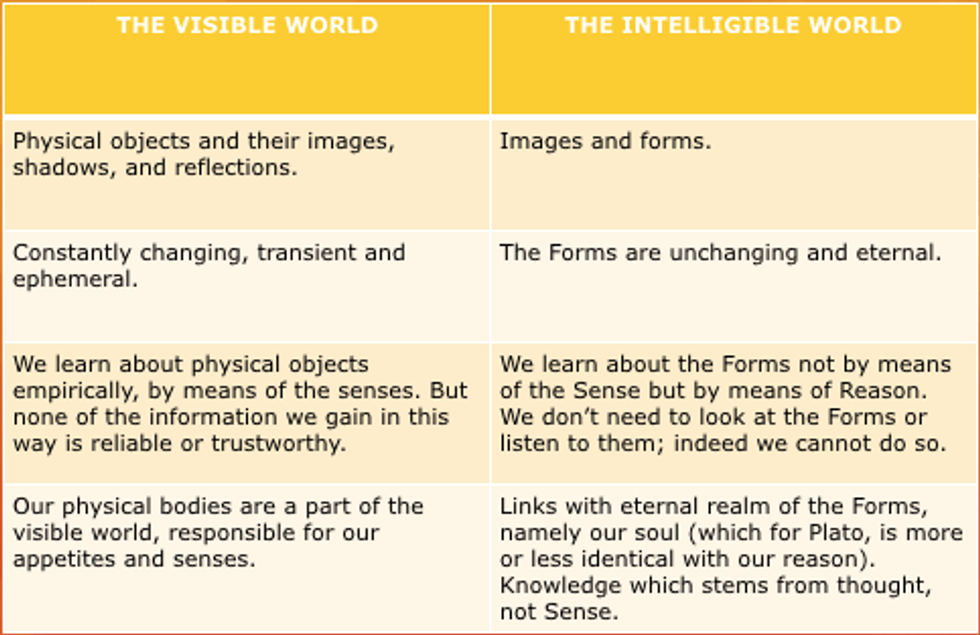While not of great significance in the spectrum of current events, a topic that inspires me, leading me to have a profound series of thoughts is Platonism, and the Platonic "Theory of Forms." Unbeknownst to many, this school of thought sparks the fires of passionate imagination, and fuels debates on discovery versus creation of math, the reality of time and many other epistemological issues.
Before venturing into the idea of forms, one should understand how Plato differentiates between the world in which we live, and the world in which we think.
Plato's Worlds:
What does the "Theory of Forms" suggest?
Simply put, it suggests that an abstract reality exists which holds all of the forms we use to describe our universe. A form acts as a perfect template that exists somewhere in another dimension, and is ultimate reference points for all objects we observe in the physical world.
I quite enjoy an explanation I read in my original discovery of this theory which said something along the lines of what follows. A horse you see in a stable is really an imperfect representation of some ideal horse that exists in this “elsewhere” dimension. The horse in the stable is just an imperfect representation of the perfect horse that exists somewhere else. Whenever you evaluate one thing, and determine that it is “better” than another thing of the same class, you assume that there is an absolute good from which those two objects can be compared. For example, how do you know a horse with four legs is better than a horse with three legs? Answer: You intuitively know that “horseness” involves having four legs.
What are the characterizing features of forms?
Forms are:
- Transcendent - the forms are not located in space and time.
- Pure - the forms only exemplify one property (a form only exemplifies one property, such as circularity, blackness or coldness).
- Archetypes - perfect examples of the property that they exemplify.
- Ultimately Real - The forms are the ultimately real entities, not material objects. All material objects are copies or images of some collection of forms; their reality comes only from the forms.
- Causes - causes of all things, provide explanation.
- Systematically Interconnected - moving from more general to more particular, from more objective to more subjective.
Now you may be asking yourself why this is of any importance at all.
It is important because of "The Ethical Problem" which exists is as follows. How can humans live a fulfilling, happy life in a contingent, changing world where every thing they attach themselves to can be taken away?
Also pertinent is "The Problem of Permanence and Change." How can the world appear to be both permanent and changing? What is more real, thought or perception?
While this subject perhaps may not affect your daily life the way current topics like "Pokemon Go" and political occurrences do, the explanations and profound questions that can be found in Plato's "Theory of Forms" can fuel conversation, promote intellectual thought and move people to consider the facets of their "reality" more passionately.






















